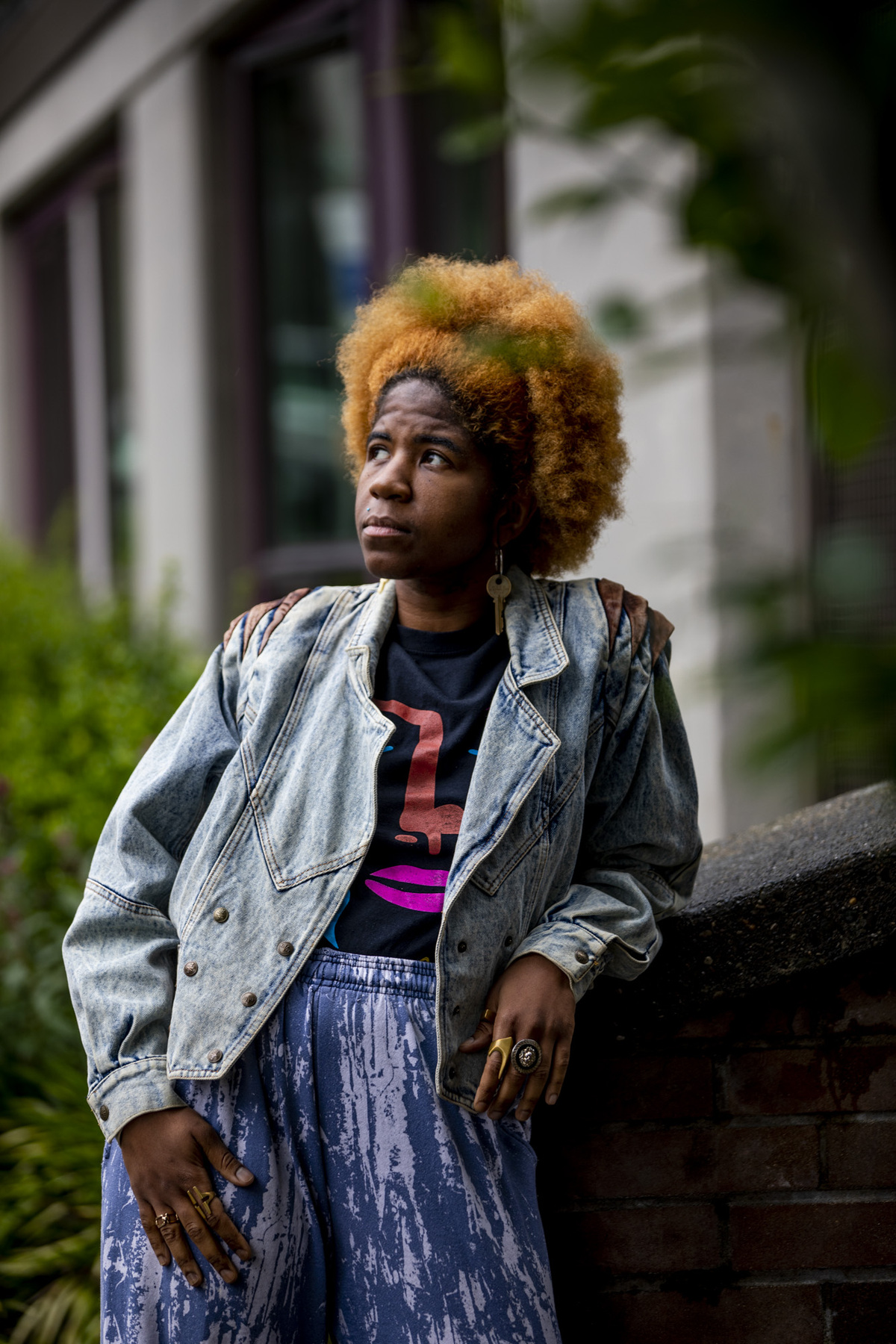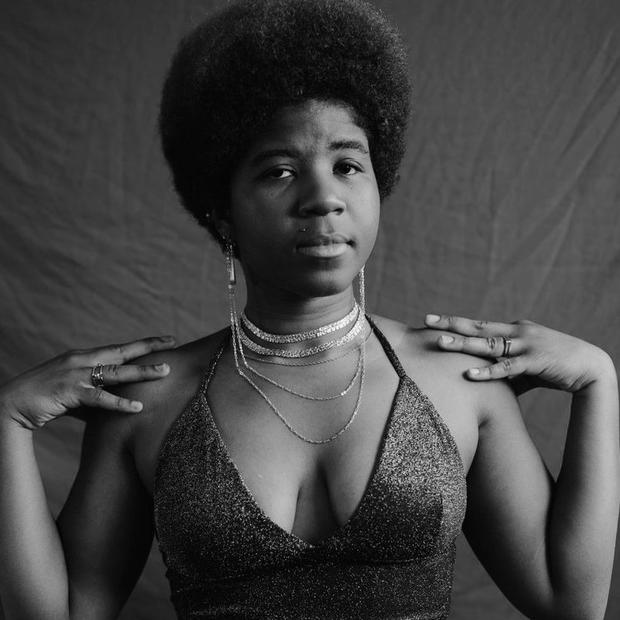Catherine Harris-White aka SassyBlack is a space aged singer, songwriter and producer
I didn’t grow up celebrating Juneteenth. It wasn’t until I was 10 years old, fresh to Seattle, that I learned about this day of liberation. At a young age, through my mother’s work, I spent time doing anti-racist organizing as part of Youth Undoing Institutionalized Racism. The Black folx I interacted with there would teach me about their annual celebrations. Although empowering, I was saddened by the lengths that slave owners went to continuously hold my people down. It was another confirmation that this country was built on the tricking and sabotage of Black people. It pushed me to learn more about my history.

But what I did know is that I loved having any opportunity to celebrate being Black. And Juneteenth is just that. Juneteenth is personal; it’s not commercial (yet) like Black History Month. It’s not a specialty item, it’s not a sale. It’s a celebration of freedom and triumph. A day of optimism to visualize what our world could look like. What our future could look like.
This is one of the reasons that Seattle is a very special place to me. The air here is unique. And my Black experience here has been unique. Many Black artists – Octavia Butler, Quincy Jones and Jimi Hendrix, to name a few — have found this environment, the spaciousness of Seattle, to be welcoming — and I stay here because I also feel this feeling. These artists all seemed to have felt the creative pull to be expansive and reflective while here. I feel these gravitational pulls, too. So I stay here in this space to cultivate this personal emotional experience.
Juneteenth is a day of celebration, but it’s hard to be Black and joyous. It hasn’t been easy to be joyous in my Blackness in public spaces in Seattle. People constantly battle me and question my Blackness, whether they are Black or not. It often feels like an ongoing investigation, where I have to prove my value to society. And prove why I deserve to be happy.
I struggle with guilt around feeling joy in general, especially during these bleak times. I have to remind myself that it’s been bleak since before my birth. These times of great disappointment have been a constant in my life because I am a Black queer woman. Because I am Black. So I have had to make the choice to take action and permit myself joy. It’s that convoluted and complex. It is a process. It takes time and patience.
Black people deserve joy. We deserve freedom. We deserve life. I deserve to be joyful because I am, because I live. My joy is a revolutionary act. I have the courage of my ancestors and of my people to say and know that my joy, even in the face of ultimate despair, is mine to have. It’s hard, but it’s necessary, and I am blessed to have music as a way to continue to celebrate my Blackness, my freedom and my being.
Read more reflections in our Juneteenth series, published in partnership with South Seattle Emerald, below. For more on the history of the holiday, see historian Quintard Taylor's essay at BlackPast.org.
- Juneteenth contains multitudes by Ben Danielson
- A cautionary tale by Lola Peters
- The next wave of emancipation by Reagan Jackson
- On police violence and unexplained loss by Vivian Phillips
- In Seattle, the legacy work of resistance and liberation by Inye Wokoma
- Joy is not the vinyl. It’s the record player by Anastacia-Reneé


